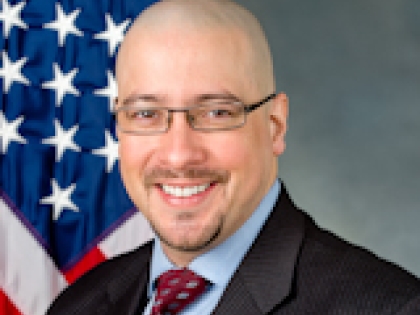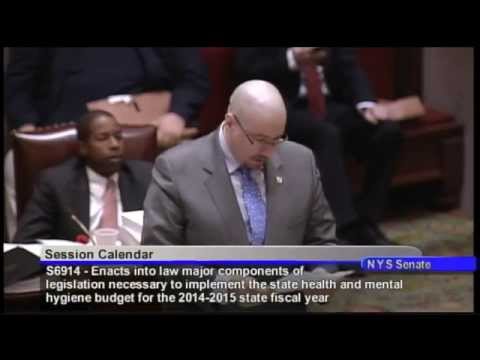
Senator Rivera on Senate Budget Resolution
March 14, 2019
-
ISSUE:
- Budget Resolution
"The One House Budget Resolution that we adopted today clearly demonstrates that as a Conference we are committed to governing effectively and in a fiscally responsible way to address the issues affecting middle class and working class New Yorkers all across our state.
As the Chair of the Health Committee, I am proud that many of the health measures proposed by the Senate health work group were included in this resolution primarily the rejection of an outrageous $1.2 billion cut to Medicaid funding that would devastate our state's entire healthcare system.
As a Conference, we strongly believe that we can champion New York values while protecting the taxpayer. This budget proposal reflects exactly that as it contains proposals that provide essential funds for New Yorkers healthcare needs and our medical care providers."
Health highlights included in the Senate One House Budget proposal:
ENSURING SENIORS AND DISABLED NEW YORKERS' ACCESS TO CARE
- Rejects a significant cut to Consumer Directed Personal Assistance Program(CDPAP) and the restructuring of fiscal intermediaries, which will prevent interruptions in care for the disabled New Yorkers, seniors and others in need of home care.
PROTECTING CHILDREN'S HEALTH & WELLNESS
- Proposes stronger lead poisoning prevention policies, such as requiring the Commissioner of Health to lower the threshold for elevated blood lead levels from 10 to 5 micro grams immediately and reduce it further within six months of any new federal recommendations. This is a part of Dakota's Law, the lead exposure prevention bill sponsored by Senator Rivera
- Increases the Early Intervention Services rate by 5%, to make sure providers continue to provide vital services which help detect disabilities or developmental delays in children and ensure they receive the treatment they need at the time in their development where it would have the greatest impact.
- Restores $3.8 million for School Based Health Clinics, $1 million for Comprehensive Care Centers for Eating Disorders, and $1 million for Lyme and Tick Borne Diseases.
HELPING NEW YORK'S HOSPITALS TO STAY WHOLE
- Rejects reducing the Department of Health's General Public Health Work Reimbursement to New York City from 36 percent to 20 percent, which would negatively impact essential public health programs, such as lead testing, legionnaires prevention, and support for new mothers.
- Rejects cuts to the Indigent Care Pool and reducing the reimbursement amount for voluntary hospitals. Instead, the Senate supported engaging stakeholders to make changes to the Indigent Care Pool that will adequately reimburse hospitals that provide a higher percentage of uncompensated care.
- Opposes the reprogramming of the Healthcare Facility Transformation money that was meant to provide much needed relief to hospitals and nursing homes and increase worker wages.
DOING MORE FOR MOTHERS AND FAMILIES
- Establishes a Maternal Mortality Review Board that preserves the New York City's board as a separate entity, a measure included in a bill sponsored by Senator Rivera.
- Requires insurance companies to provide comprehensive coverage of fertility preservation and in vitro fertilization
MORE AFFORDABLE PRESCRIPTIONS
- Reinvests $2 million in Elderly Pharmaceutical Insurance Coverage (EPIC) savings and directs the Department to increase eligibility and increase awareness through public outreach.
- Regulates Pharmacy Benefit Managers (PBMs) by increasing penalties for violations of law by PBMs, imposing further fiduciary duties upon PBMs, increasing transparency of PBM contracts with regards to conflicts of interest, and prohibiting PBMs from requiring the substitution of a dispensed drug without the approval of the prescriber.
ADVANCING TOWARDS TRULY ADEQUATE COVERAGE FOR ALL
- Codifies provisions of the Affordable Care Act and NY State of Health Marketplace into state law to protect New Yorkers from shifts by the federal government.
- Adds $20 million for services to Safety Net Clinics to provide care to those New Yorker's who are underinsured and uninsured.
Share this Article or Press Release
Newsroom
Go to Newsroom